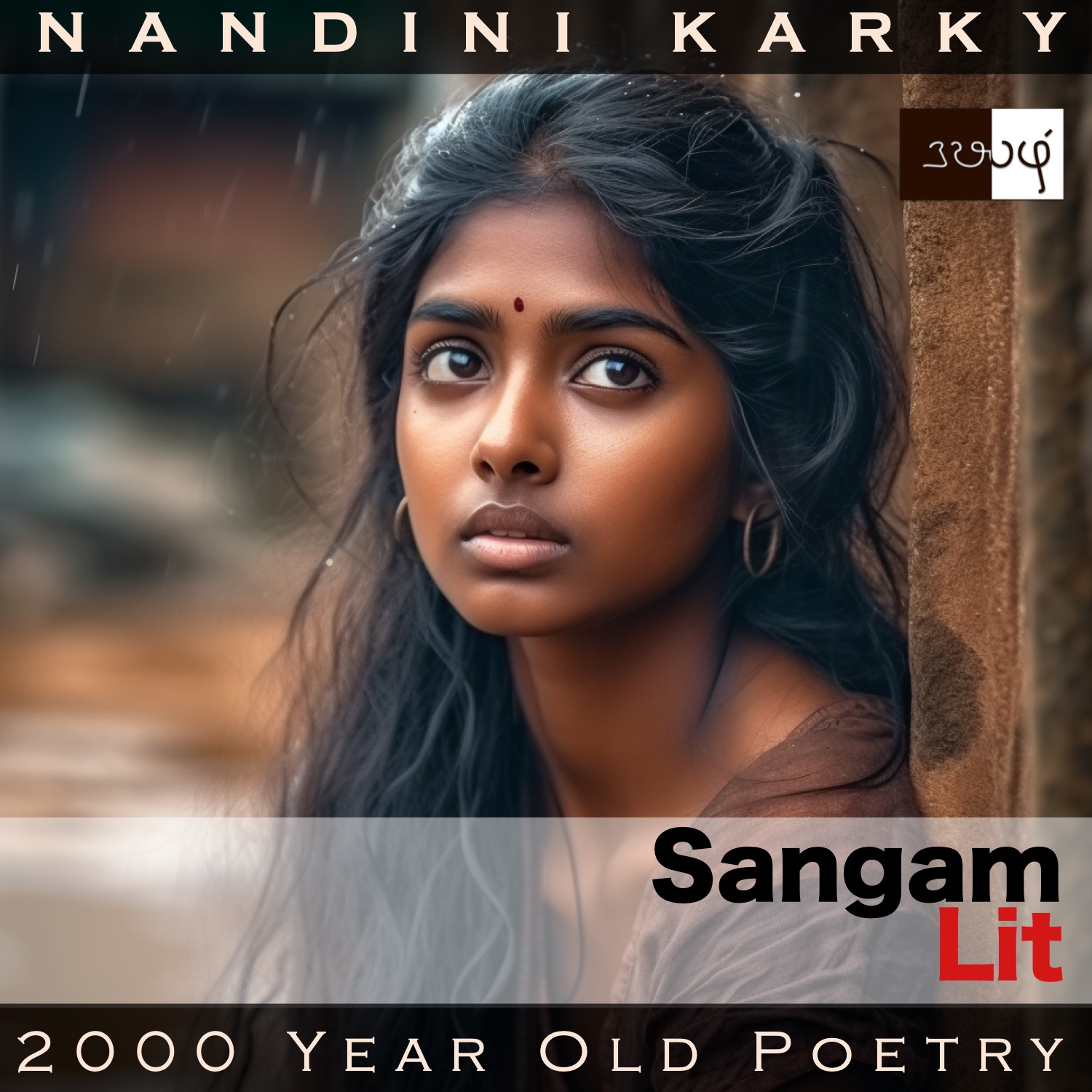Podcast: Play in new window | Download
Subscribe: Apple Podcasts | Spotify | Amazon Music | Android | iHeartRadio | TuneIn | RSS | More
In this episode, we perceive the same gift being requested of this king, as depicted in Sangam Literary work, Puranaanooru 147, penned about the Velir King Vaiyaavi Koperum Bekan by the poet Perunkundroor Kizhaar. The verse is situated in the category of ‘Perunthinai’ or ‘Inappropriate love’ and speaks about a lonely lady’s state of suffering.

கல் முழை அருவிப் பல் மலை நீந்தி,
சீறியாழ் செவ்வழி பண்ணி வந்ததை,
கார் வான் இன் உறை தமியள் கேளா,
நெருநல் ஒரு சிறைப் புலம்புகொண்டு உறையும்
அரி மதர் மழைக் கண், அம் மா அரிவை
நெய்யொடு துறந்த மை இருங் கூந்தல்
மண்ணுறு மணியின் மாசு அற மண்ணி,
புது மலர் கஞல, இன்று பெயரின்,
அதுமன், எம் பரிசில், ஆவியர் கோவே!
Yet another poet sings of the exact same thing to this king. His words can be translated as follows:
“When I journeyed, crossing many a cave and cascade in many a hill, playing the ‘Sevvazhi’ melody on a small lute, I chanced upon this solitary woman yesterday, who heard not the pleasantness of the drops from the dark skies. For she was leaning on one side in utter loneliness with her exquisite, rain-like eyes, streaked in red – that beautiful woman. To make her dark tresses that have forgotten the touch of oil, shine like sapphires, by washing it clean and adorning it with flowers, you must part today. And that will be the only gift I seek, O leader of the Aaviyar clan!”
At the core, the message conveyed to the king is the same as the previous few verses. Let’s try and excavate a few finer details. The poet first mentions his journey of walking through rugged mountain paths, crossing cascades and caves on many hills to arrive at the king’s mansion. As seemed to be the custom then, he plays the small lute and sings in the ‘Sevvazhi’ tune, no doubt in praise of the king and his land. At this time, sweet drops of rain fall from the skies, which the poet describes as a pleasant sound but there’s no joy in one lady, who happens to be listening to all this, with much sorrow. Then, the poet declares that lady’s sorry state of having dried-up, oil-less hair must change and that it must be washed and adorned with fresh flower blossoms. For that to happen, the king must leave instantly, and that’s all the gift he seeks from his patron, the poet concludes.
Is the king some kind of hairstylist? Why must he go to make the lady’s tresses clean? We know the answer to these cheeky questions already! As we saw in the previous verse, the lady would sit without dressing up herself if her man was away from her. The interesting detail in this verse is that these ancients seemed to have considered only an oiled hairdo, a symbol of a presentable woman, whereas dry, flowing hair as most women of fashion tend to leave it today, suggested a state of despair and ruin to those ancients. And, the other detail, the poet touches upon is the journey a professional such as him takes to gain the patronage of kings who lived far away. They were no doubt, the original explorers and mappers of domains then! Finally, in the way the poet describes the sweetness of rain drops with relish, we know that feeling extends from across the millennia to the present of this land, especially in the sweltering heat of an Indian summer!




Share your thoughts...